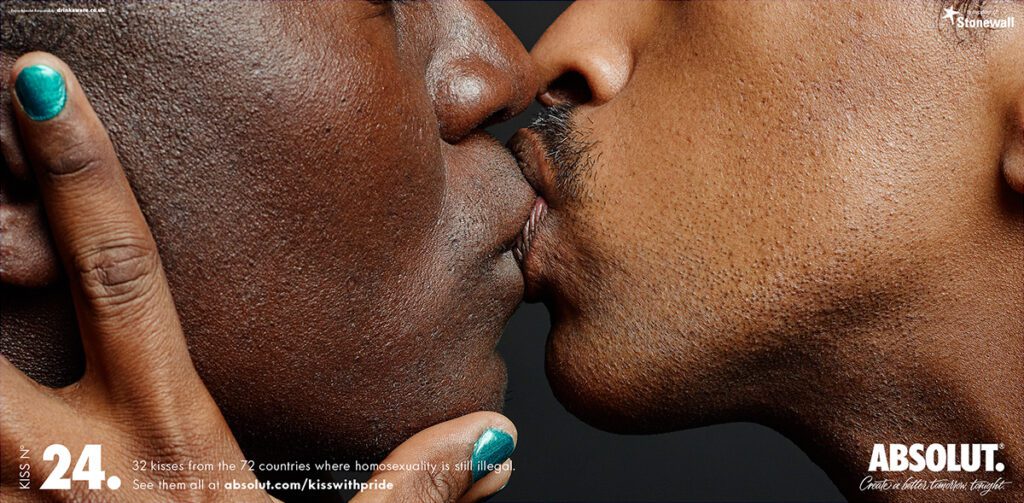Alcohol and Mental Health First Aid Training
Like physical health, we all have mental health, and each are both intertwined. Just as with physical health, poor mental health can affect each of us in very different ways. So, as part of YesMore Agency’s mission to improve society’s relationship with alcohol, we felt it vitally important to learn more about alcohol and mental health by getting our team trained as mental health first aiders.
As the Mental Health movement (finally) expands and grows, people become more educated on the topic and more conversation is starting in the drinks industry about alcohol and mental health. It is becoming clearer to many that mental health is as important as physical health and therefore it’s important to give them the same amount of care. Which is why more and more companies are valuing the importance of investing in mental health first aid training for their employees.
We probably spend more time with our colleagues than most other people in our lives yet they can often be the people who know the least about what’s going on. How many times has anyone answered your smiling colleague in the morning saying, ‘how are you?’ with ‘yeh yeh fine’ when deep down you mean totally crap but don’t have the energy to explain? I have done this many times. A key tip our MHFA trainer gave us was to ask, “How are you?” followed by ‘How are you really?’
As a company who prides ourselves on our mental health values, we thought it was important to get our team trained as Mental Health First aiders. So one of our co-founders, Tom Harvey, and Account Manager, Emma Hancock (me), went on Mental Health England’s two day course to become qualified Mental Health First Aiders.
This mental health first aid training course was a hugely beneficial experience, not only did we learn a lot about different mental illnesses but we learned key skills allowing us both to feel better able to support our team or someone else in need, such as those from our co-working space, our suppliers or even our clients. Additionally, we learned a lot more about the relationship between alcohol and mental health.
Within this blog I want to share three key learnings.
MENTAL HEALTH ‘STRESS CONTAINER’
Stress is a buzzword that comes up a lot within the workplace and possibly the most common mental health concept spoken about within the workplace. Everyone has different limits for what causes them stress and we can often find ourselves accidentally judging people. Learning about the stress container reminded me that even when you spend everyday with people, you can never really be sure what is going on with them or what things are already present in their ‘stress container’.
Follow the steps below, or try using the interactive stress container tool to better understand your limits on stress.
To illustrate this point, I ask you to go and get a cup and hold it in front of you…
- Imagine this is your ‘stress container’ – the place you hold all your stresses in life, love, work, family, finances, everything.
- Now check out the diagram below for inspiration and start adding water to represent all your daily and ongoing stresses.
- At some points you will have a lot of room in your stress container to deal with the daily stresses of work and life and at other points it will be full so if anything even small happens it may start to overflow.
- We manage our stress with a tap (or pouring back into the sink in the case of our cup) and it is important that we are all aware of what tools make up our tap e.g., regular exercise, regular socialising, regular sleep etc.
It’s important to note that our stress containers vary in size based on our vulnerability. So, someone with a pre-existing health or mental health condition may have a smaller stress container than someone without. This analogy is interesting to emphasise the importance of being kind to those around us as we can never quite be sure how big someone’s stress container is or what’s inside it.
It’s important to note that our stress containers vary in size based on our vulnerability. So, someone with a pre-existing health or mental health condition may have a smaller stress container than someone without. This analogy is interesting to emphasise the importance of being kind to those around us as we can never quite be sure how big someone’s stress container is or what’s inside it.
MENTAL HEALTH: THE ALGEE APPROACH
For anyone who has completed a first aid course you will know that there is a common mnemonic used to remember the best approach when someone is injured or ill. DRABC. Danger, Response, Airway, Breathing and Compressions. The first aider will not always need to use all actions as it will depend on the condition of the person. Similarly the mental health first aid training course provides an action plan on how to help a person in a mental health crisis or developing mental health issues. ALGEE.
Approach the person, assess and assist with any crisis
Listen and communicate nonjudgmentally
Give support and information
Encourage the person to get appropriate professional help
Encourage other supports
ALGEE emphasises the important point that this course doesn’t mean you are qualified to treat someone with a mental health issue in the same way you wouldn’t want a first aider to be the one giving you treatment, but it does allow you to be better able to spot when a colleague may need extra support.
Having completed the two-day course we felt inspired by other people at the course with passions to make small changes to perceptions on mental health and using the course as a way to positively affect those around them. We also felt prepared and full of knowledge of how to better support others, and with a far greater understanding of the links between mental health and alcohol. If you have made it to the end of this blog, we would encourage you to look into the Mental Health First Aid course further and suggest it for your company or speak to your employer about it.
We’re a Food and Beverage Marketing Agency producing mindful marketing campaigns for the food and drinks industry, check out our work and get in touch!
HELPFUL RESOURCES, CAMPAIGNS AND GUIDANCE
Check out some of these further resources for more guidance around mental health first aid training and mental health in general.
Department Of Health guidance on workplace adjustments for mental health
The Department of Health published this advice on providing reasonable adjustments for mental health conditions, outlining examples of adaptations and good practice on applying any adjustments.
Food and Drink Federation guide to Workplace Wellbeing
This resource created by the Food and Drink Federation provides a best practice guide of tools and case studies on supporting wellbeing in the workplace.
ACAS (Advisory, Conciliation and Arbitration Service)
Phone: 0300 123 1100
Acas provides free and impartial information and advice to employers and employees on all aspects of workplace relations and employment law. Supports good relationships between employers and employees, but also provides conciliation services to resolve workplace problems.
BITC (Business in the Community)
Phone: 020 7566 8650
Email: info@bitc.org.uk
Business in the Community is the Prince’s Responsible Business Network. Its members work together to tackle a wide range of issues essential to building a fairer society and more sustainable future. BITC provides a range of services, practical guidance and creative solutions that help businesses review, improve, measure and report. BITC has also launched a toolkit resource, helpful for all organisations that are exploring how to embed a wellbeing strategy into their organisation.
Hope you enjoyed the article. For more good reads, interviews and news from the wonderful world of alcohol, you can sign up to our monthly newsletter or follow YesMore Agency on Linkedin.
If you’d like to work with us, get in touch today, or check out our full range of drinks marketing services.
Liked this piece? Sign up to our drinks marketing insights newsletter (no more than monthly) or follow YesMore Agency on LinkedIn.
Interested in us working for you? Email Hello@YesMoreCreative.com (both US & UK/EU work). Or if working with us sounds fun (it is) email Jobs@YesMoreCreative.com.



